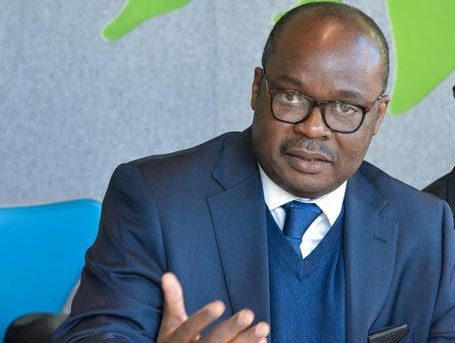The Monetary Policy Committee of the Bank of Ghana has increased the policy rate - the rate at which it lends to commercial banks - by 2.5% per cent to 17%.
This is the first time since November 2018 that the rate has gone up so high.
The decision is due to the current pressures on the economy, the uncertainty about the economic outlook and developments in Russia – Ukraine, which has pushed fuel prices up astronomically.
The move to adjust the base lending rate of the Central Bank is expected to control the rising inflation and check the rapid depreciation of the cedi.
However, cost of loans is expected to go up with immediate effect. This means cost of living and cost of doing business is expected to go up, whilst consumer spending will decline.
“The Sovereign credit rating downgrades of Ghana by Fitch and Moody’s led to widened yield spreads on both cedi-denominated Government of Ghana bonds and the country’s Eurobonds. These downgrades reflect market and investor concerns about fiscal and debt sustainability. Consequently, the Ghana Cedi has come under severe pressure as offshore investors exited positions in domestic securities at a time when domestic demand for forex has increased, reflecting both real and speculative demand. This has caused the exchange rate to overshoot its long-term trend. The strengthening of the US dollar, liquidity pressures, uncertainties regarding budget implementation, portfolio reversals by nonresidents and some speculative pressures are key contributory factors”, the Governor explained.
He further said “at this MPC meeting, the combination of tighter global financing conditions, sharp pressures on the exchange rate, and elevated inflation pose some policy challenges. Headline inflation has risen sharply to 15.7 percent in February 2022, and both headline and core inflation are significantly above the upper limit of medium-term target band. The uncertainty surrounding price developments and its impact on economic activity is weighing down business and consumer confidence.”
“The risks in the outlook for inflation are on the upside and include petroleum price adjustments and transportation costs, and exchange rate depreciation. The Bank’s latest forecast still depicts an elevated inflation profile in the near term, with inflation falling within the medium-term target band within a year”, he added.
Again, the Governor cited fiscal policy implementation which has come under strain, reflecting embedded rigidities in the fiscal framework and require extensive structural reforms to free fiscal space to restore both fiscal and debt sustainability, as reasons for increasing the policy rate, adding, “revenue performance has been slow to align with projections, while expenditure remains rigid downwards despite the strong efforts to cut expenditure by 20% as announced by the government.”
He concluded that the MPC is confident that ongoing discussions will lead to very decisive policy reforms that will address underlying fiscal mismatches and restore some calm in the markets, adding “this, together with the monetary policy decision and additional measures, should help re-anchor inflation expectations.”
BoG announces other measures
In addition to the upward policy rate adjustment, the Bank of Ghana with effect from April 1, 2022, enforce the following measures in relation to universal banks.
These are increased in cash reserve to 12%, whilst the Capital Conservation Buffer is reset to the pre-pandemic level of 3% making the Capital Adequacy Ratio a total of 13 percent.
The provisioning rate for loans in the Other Loans Exceptionally Mentioned (OLEM) category is also reset to the pre-pandemic level of 10%
Interest rates rise on yield curve
The Bank of Ghana said developments on the money market broadly showed rising interest rates across the entirety of the yield curve.
Over the period December 2021 to February 2022, the 91-day and 182-day Treasury bill rates inched up to 12.8% and 13.3% respectively, in February 2022. The respective rates in December 2021 were 12.5% percent and 13.2%.
The rate on the 364-day instrument also went up from 16.5% to 16.97%.
The rate on the 3-year bond also increased from 19% to 20.5%, while that for the 2-year and 5-year bond remained unchanged at 19.75 and 21 percent respectively.
Latest Stories
-
Afenyo-Markin still suffering from the massive defeat – Fifi Kwetey
7 minutes -
Retain Afenyo-Markin as NPP leader, he has experience – Deputy Speaker
18 minutes -
Kufuor didn’t leave behind a strong economy – Fifi Kwetey
22 minutes -
It won’t be business as usual, remain humble – Fifi Kwetey to party members
1 hour -
Ebenezer Ahumah Djietror appointed as new Clerk to Parliament
2 hours -
Actress Benyiwaa of ‘Efiewura’ TV series dead
2 hours -
Ashanti Regional Chief Imam dies at age 74
3 hours -
Africa Arts Network calls for tax reform to save Ghana’s theatre industry
3 hours -
SSTN Ghana Chapter reaffirms commitment to economic growth under new leadership
3 hours -
Inlaks strengthens leadership team with key appointments to drive growth across sub-Saharan Africa
4 hours -
Green Financing: What Ghana’s Eco-startups need to know
4 hours -
CHAN Qualifiers: Amoah confident of beating Nigeria
4 hours -
Governments deprioritising health spending – WHO
4 hours -
Lordina Foundation brings Christmas joy to orphans
4 hours -
Yvonne Chaka Chaka to headline ‘The African Festival’ this December
4 hours

